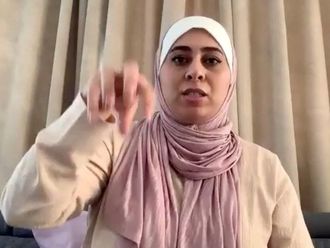
Baghdad: Iraq has officially asked Saudi Arabia to recall its ambassador to Baghdad after the envoy allegedly told media outlets of a plot by Iran-backed Iraqi groups to assassinate him.
“The Iraqi foreign ministry has sent an official request to the Saudi foreign ministry to replace its ambassador to Iraq,” ministry spokesman Ahmad Jamal said in a statement.
“Several statements and opinions voiced in the media overstepped the boundaries of diplomatic protocol and of an ambassador’s duties,” he said.
Thamer Al Sabhan, whose credentials were received in January 2016, became the first Saudi ambassador to Iraq in a quarter century, after relations were cut following ex-president Saddam Hussain’s invasion of Kuwait.
His posting got off to a rocky start however, with popular anger among Iraq’s Shiite majority over the execution by Saudi Arabia a few days earlier of anti-government Shiite cleric Nimr Al Nimr.
In January, Al Sabhan was summoned after he gave an interview in which he criticised the Tehran-backed Shiite militia that make up the bulk of the Hashed Al Shaabi paramilitary force battling Daesh alongside Iraqi security forces.
In the interview with Iraq’s Al Sumaria TV he said: “The refusal by the Kurds and [the Sunni province of] Anbar to let the Hashid Shaabi come to their regions shows that the Hashid is not accepted by Iraqi society,” Sabhan said.
More recently, Baghdad was infuriated by a claim the ambassador allegedly made that those same groups were planning to assassinate him.
In June, Al Sabhan denied media reports that he was physically assaulted at a conference in the capital Baghdad, saying that he had been out of the country for more than three weeks.
Reports in Iraq claimed that Al Sabhan had to leave Al Rasheed Hotel where an inter-tribal conference was taking place after he was abused by protesters opposed to his presence.
Al Sabhan on his Twitter account said that the allegations were part of the media campaigns targeting Saudi Arabia.
Even though Saddam was ousted in April 2003, relations between Riyadh and Baghdad remained tense, particularly during the presidency of former Iraqi Prime Minister Nouri Al Maliki.
Saudi Arabia warned that American military withdrawal in Iraq would allow Tehran to increase its influence in Iraq under Al Maliki.
After Saddam’s overthrow, Iranian-backed Shiite factions have risen to power, fulfilling Riyadh’s apprehensions.
Iraq also has strong ties to Syria, Iran’s only Arab ally, which the Arab League has suspended over President Bashar Al Assad’s violent suppression of an 11-month-old uprising.











